When it comes to advertising, lawyers often find themselves navigating a complex landscape filled with regulations, competition, and the ever-evolving digital world. It’s easy to make mistakes that can not only waste resources but also tarnish a firm’s reputation. So, what are the biggest pitfalls that legal professionals encounter in their marketing efforts? Let’s dive into the top ten law firm marketing mistakes and explore how to avoid them.
Top 10 Law Firm Marketing Mistakes and How to Avoid Them

Understanding the common missteps in legal advertising can save you time, money, and frustration. Here’s a closer look at the top ten mistakes lawyers make in their advertisements, along with practical tips to steer clear of these traps.
The Top 10 Most Common Mistakes Are:
- Neglecting Target Audience: One of the most significant errors is failing to identify and understand your target audience. Are you reaching out to individuals seeking personal injury representation, or are you targeting businesses in need of corporate law? Tailoring your message to resonate with the specific needs and concerns of your audience is crucial. For instance, a personal injury lawyer might share testimonials from past clients to build trust and relatability.
- Overlooking Online Presence: In today’s digital age, having a robust online presence is non-negotiable. Many lawyers underestimate the power of a well-designed website and active social media profiles. A study by the American Bar Association found that 35% of clients search for legal services online. If your firm isn’t visible, you’re missing out on potential clients.
- Ignoring SEO Best Practices: Search Engine Optimization (SEO) is vital for ensuring your firm appears in search results. Many lawyers fail to optimize their content, making it difficult for potential clients to find them. Simple strategies like using relevant keywords, creating quality content, and ensuring your website is mobile-friendly can significantly enhance your visibility.
- Using Jargon and Legalese: While you’re an expert in your field, your clients may not be. Using complex legal terminology can alienate potential clients. Instead, aim for clear, straightforward language that explains your services and how you can help. Think of it as having a conversation with a friend—keep it relatable.
- Neglecting Client Testimonials: Social proof is powerful. Many lawyers overlook the importance of client testimonials and reviews. Positive feedback can significantly influence potential clients’ decisions. Encourage satisfied clients to share their experiences, and prominently display these testimonials on your website and marketing materials.
- Failing to Track Results: Without tracking the effectiveness of your marketing efforts, you’re essentially flying blind. Many firms invest in advertising without measuring its impact. Utilize tools like Google Analytics to monitor website traffic and conversion rates, allowing you to adjust your strategies based on what works best.
- Not Having a Clear Call to Action: Every advertisement should have a clear call to action (CTA). Whether it’s encouraging potential clients to call for a consultation or visit your website for more information, a strong CTA guides them on the next steps. Make it easy for them to reach out.
- Being Too Generic: In a crowded market, standing out is essential. Many lawyers make the mistake of using generic advertisements that fail to highlight their unique selling points. What sets your firm apart? Is it your years of experience, a specific area of expertise, or a commitment to client service? Make sure your advertisements reflect your unique identity.
- Ignoring Compliance and Ethical Guidelines: Legal advertising is subject to strict regulations. Failing to adhere to these guidelines can lead to serious consequences. Always stay informed about the rules governing legal advertising in your jurisdiction to avoid potential pitfalls.
- Not Engaging with the Community: Building relationships within your community can enhance your firm’s reputation and visibility. Many lawyers miss opportunities to engage in local events, sponsor community activities, or participate in pro bono work. These efforts not only help those in need but also position your firm as a trusted community resource.
By being aware of these common mistakes and actively working to avoid them, you can create a more effective and engaging marketing strategy that resonates with potential clients. Remember, the goal is to connect with people on a personal level, showcasing not just your expertise but also your commitment to serving their needs.
Mistake #1: Lack of Clear Marketing Strategy
Have you ever tried to navigate a new city without a map? It can be overwhelming, right? This is exactly how many lawyers feel when they approach marketing their practice without a clear strategy. A well-defined marketing strategy is not just a luxury; it’s a necessity in today’s competitive legal landscape. Without it, you risk wasting time and resources on efforts that yield little to no return.
According to a survey by the American Bar Association, nearly 70% of lawyers admit they don’t have a formal marketing plan. This lack of direction can lead to inconsistent messaging, missed opportunities, and ultimately, a failure to connect with potential clients. Imagine pouring your heart into a social media post that doesn’t resonate with your audience simply because you didn’t take the time to understand who they are and what they need.
How to Avoid Mistake #1:
So, how can you steer clear of this common pitfall? Start by defining your target audience. Who are the clients you want to attract? What are their pain points? Once you have a clear picture, you can tailor your marketing efforts to speak directly to them. For instance, if you specialize in family law, consider creating content that addresses common concerns for parents going through a divorce.
Next, set specific, measurable goals. Instead of vaguely aiming to “get more clients,” try setting a goal like “increase website traffic by 30% in the next six months.” This gives you a clear target to aim for and allows you to track your progress. Finally, don’t forget to regularly review and adjust your strategy based on what’s working and what isn’t. Marketing is an evolving process, and staying flexible will help you adapt to changes in the market.
Mistake #2: Ignoring Digital Presence
In a world where we can order groceries with a few taps on our phones, it’s hard to believe that some lawyers still overlook the importance of a strong digital presence. Ignoring digital marketing is like refusing to open a storefront in a bustling shopping district. You might be the best lawyer in town, but if potential clients can’t find you online, they’ll never know.
Research shows that over 80% of people conduct online research before making a decision about hiring a lawyer. If your website is outdated or, worse, non-existent, you’re missing out on a significant number of potential clients. A well-designed website not only showcases your expertise but also builds trust. Think of it as your digital handshake—first impressions matter!
Moreover, social media platforms like LinkedIn, Facebook, and Instagram offer incredible opportunities to connect with your audience. Sharing valuable content, engaging with followers, and showcasing your personality can help humanize your practice and make you more relatable. For example, a personal story about a case you handled can resonate deeply with someone facing a similar situation.
Don’t just take my word for it; experts agree. Marketing consultant and attorney, Julie Brook, emphasizes, “In today’s digital age, having a robust online presence is crucial. It’s not just about being found; it’s about being remembered.”
How to Avoid Mistake #2:
When it comes to legal advertising, one of the most common pitfalls lawyers encounter is failing to understand their target audience. Imagine you’re a personal injury attorney, and you create an advertisement that speaks in legal jargon, filled with complex terms that only a fellow lawyer would understand. This approach not only alienates potential clients but also diminishes the effectiveness of your marketing efforts. So, how can you avoid this mistake?
First, take the time to research and define your ideal client. Who are they? What are their pain points? What solutions are they seeking? By understanding your audience, you can tailor your messaging to resonate with them. For instance, if you’re targeting young families, your content should focus on relatable scenarios, such as the importance of safety in the home or the financial implications of an accident.
Additionally, consider using simple, clear language that speaks directly to your audience’s needs. A study by the Nielsen Norman Group found that users often skim content, so make your key points stand out. Use bullet points, subheadings, and engaging visuals to break up text and keep readers interested. Remember, the goal is to connect with your audience on a personal level, making them feel understood and valued.
Mistake #3: Ineffective Content Marketing
Content marketing is a powerful tool for lawyers, yet many fail to leverage it effectively. Picture this: you’ve invested time and resources into creating a blog, but it’s filled with generic advice that doesn’t reflect your unique voice or expertise. As a result, potential clients scroll past your posts, unaware of the wealth of knowledge you have to offer. This is a classic example of ineffective content marketing.
To truly engage your audience, your content should not only inform but also inspire. Share stories that highlight your successes, such as a case where you made a significant difference in a client’s life. This not only showcases your expertise but also builds trust and rapport with potential clients. According to a HubSpot study, 70% of consumers prefer getting to know a company via articles rather than ads, emphasizing the importance of authentic storytelling in your marketing strategy.
How to Avoid Mistake #3:
So, how can you ensure your content marketing is effective? Start by developing a content strategy that aligns with your brand and speaks to your audience’s needs. Consider the following tips:
- Be Consistent: Regularly publish content to keep your audience engaged. Whether it’s weekly blog posts or monthly newsletters, consistency builds familiarity and trust.
- Focus on Quality: Prioritize high-quality content over quantity. Each piece should provide value, whether through insights, tips, or personal anecdotes that resonate with your audience.
- Utilize SEO Best Practices: Optimize your content for search engines to increase visibility. Use relevant keywords, meta descriptions, and alt text for images to help potential clients find you online.
- Engage with Your Audience: Encourage comments and questions on your posts. Responding to inquiries not only fosters community but also positions you as an approachable expert in your field.
By focusing on these strategies, you can transform your content marketing from ineffective to impactful, ultimately attracting the clients you want to serve. Remember, it’s not just about selling your services; it’s about building relationships and establishing yourself as a trusted resource in the legal community.
Mistake #4: Neglecting Client Reviews and Testimonials
Imagine walking into a restaurant with no reviews. Would you feel comfortable ordering a meal? Probably not. Just like diners rely on reviews to make informed choices, potential clients look for testimonials to gauge the credibility and effectiveness of a lawyer. Neglecting this aspect can be a significant misstep in your advertising strategy.
Client reviews and testimonials serve as powerful social proof. According to a study by BrightLocal, 87% of consumers read online reviews for local businesses, and 79% trust online reviews as much as personal recommendations. This statistic highlights the importance of showcasing positive client experiences. When you share authentic testimonials, you not only build trust but also create a connection with prospective clients who may be facing similar challenges.
Consider the story of a small law firm that decided to feature client testimonials prominently on their website. They created a dedicated page where they shared detailed stories of how they helped clients navigate complex legal issues. As a result, they saw a 30% increase in inquiries within just a few months. This shift not only boosted their visibility but also fostered a sense of community and trust among potential clients.
However, it’s not just about collecting reviews; it’s about how you present them. A simple, well-designed layout that highlights key quotes can make a significant difference. Additionally, responding to reviews—both positive and negative—demonstrates your commitment to client satisfaction and can turn a negative experience into a positive one.
How to Avoid Mistake #4:
To effectively leverage client reviews and testimonials, consider these actionable steps:
- Encourage Feedback: After a case concludes, reach out to clients and ask for their feedback. A simple email or a follow-up call can go a long way in gathering testimonials.
- Showcase Authenticity: Use real names and photos (with permission) to add credibility. Authenticity resonates more with potential clients than generic quotes.
- Utilize Multiple Platforms: Don’t limit yourself to just your website. Share testimonials on social media, Google My Business, and legal directories to maximize reach.
- Respond to Reviews: Engage with clients by responding to their reviews. Thank them for their feedback and address any concerns they may have raised.
- Regularly Update Testimonials: Keep your testimonials fresh by regularly updating them. This shows that you are actively engaged with your clients and their experiences.
Mistake #5: Overlooking Local SEO
Have you ever searched for a lawyer online and found yourself overwhelmed by the options? In today’s digital age, having a strong online presence is crucial, especially for local businesses like law firms. Overlooking local SEO can mean missing out on potential clients who are searching for legal services right in your neighborhood.
Local SEO is all about optimizing your online presence to attract more business from relevant local searches. According to Google, 46% of all searches have local intent, meaning that people are looking for services nearby. If your firm isn’t appearing in these searches, you’re likely losing out on valuable leads.
Take, for instance, a personal injury lawyer in a bustling city. By optimizing their website for local SEO—using keywords like “personal injury lawyer in [City Name]” and ensuring their Google My Business profile is complete—they were able to increase their visibility significantly. They went from being on the second page of search results to the first, resulting in a 50% increase in client inquiries within just a few months.
Local SEO isn’t just about keywords; it also involves creating content that resonates with your community. Blog posts about local legal issues, participation in community events, and partnerships with local businesses can enhance your visibility and reputation.
How to Avoid Mistake #5:
To effectively implement local SEO strategies, consider the following tips:
- Optimize Your Google My Business Listing: Ensure your listing is complete with accurate information, including your address, phone number, and business hours. Encourage clients to leave reviews here.
- Use Local Keywords: Incorporate local keywords throughout your website content, including in your blog posts, service pages, and meta descriptions.
- Create Local Content: Write blog posts or articles that address local legal issues or events. This not only helps with SEO but also positions you as a knowledgeable resource in your community.
- Engage with Local Directories: List your firm in local legal directories and ensure your information is consistent across all platforms.
- Monitor Your Online Presence: Use tools like Google Analytics to track your website traffic and see how local searches are impacting your inquiries.
How to Avoid Mistake #5:
As we dive deeper into the world of legal advertising, it’s essential to recognize that every misstep can have significant repercussions. Mistake #5 often revolves around the lack of a clear and compelling message. Imagine scrolling through social media and seeing a law firm’s ad that’s filled with jargon and legalese. It’s easy to feel lost, right? You want to connect with a firm that understands your needs, not one that speaks in a language you don’t understand.
To avoid this pitfall, start by defining your target audience. Who are you trying to reach? What are their pain points? Once you have a clear picture, craft a message that resonates with them. For instance, if you specialize in family law, consider sharing a heartfelt story about how your services helped a family navigate a tough divorce. This not only humanizes your practice but also builds trust with potential clients.
Additionally, consider the power of visuals. A well-designed ad with relatable imagery can speak volumes. According to a study by the American Bar Association, ads that incorporate personal stories and visuals are 60% more likely to engage viewers. So, don’t shy away from showcasing your firm’s personality and values!
Mistake #6: Poorly Managed Social Media Accounts
In today’s digital age, social media is not just a platform for sharing cat videos; it’s a powerful tool for lawyers to connect with clients and build their brand. However, many legal professionals fall into the trap of poorly managed social media accounts. Have you ever come across a law firm’s page that hasn’t been updated in months? It leaves you wondering if they’re still in business or if they care about their online presence at all.
Social media is a reflection of your practice. It’s where potential clients go to gauge your expertise and approachability. A study by Law Technology Today found that 70% of consumers look to social media to learn more about a business before making a decision. If your accounts are stale or inconsistent, you risk losing out on valuable connections.
Moreover, engaging with your audience is crucial. Responding to comments, sharing relevant articles, and posting updates about your firm can foster a sense of community. Think of it as a conversation with friends—people appreciate when you take the time to listen and respond.
How to Avoid Mistake #6:
So, how can you ensure your social media presence is not only active but also effective? Start by creating a content calendar. This will help you plan and schedule posts in advance, ensuring a consistent flow of content. Aim for a mix of informative posts, client testimonials, and behind-the-scenes glimpses of your firm. This variety keeps your audience engaged and showcases the human side of your practice.
Additionally, consider using social media management tools like Hootsuite or Buffer. These platforms allow you to schedule posts, track engagement, and analyze performance, making it easier to stay on top of your social media game. Remember, it’s not just about posting; it’s about creating meaningful interactions.
Finally, don’t hesitate to seek feedback. Ask your colleagues or even clients what they think about your social media presence. Their insights can provide valuable perspectives and help you refine your approach. By actively managing your social media accounts, you not only avoid the pitfalls of neglect but also position your firm as a relatable and trustworthy resource in the legal community.
Mistake #7: Underestimating the Importance of a Professional Website
Imagine walking into a law office that looks outdated, cluttered, and uninviting. How would that make you feel about the services offered there? Now, think about your own online presence. In today’s digital age, your website is often the first impression potential clients have of you. Underestimating the importance of a professional website can be one of the biggest mistakes lawyers make.
A well-designed website serves as your digital storefront, showcasing your expertise, values, and the services you offer. According to a study by the American Bar Association, over 70% of clients research lawyers online before making a decision. If your website is not up to par, you risk losing potential clients to competitors who have invested in their online presence.
Consider the case of a small law firm that revamped its website. They invested in a clean, user-friendly design, optimized for mobile devices, and included client testimonials and case studies. Within months, they saw a 50% increase in inquiries. This transformation highlights how a professional website can significantly impact your practice.
How to Avoid Mistake #7:
To ensure your website reflects your professionalism, consider the following tips:
- Invest in Quality Design: Work with a professional web designer who understands the legal industry. A polished, modern design can enhance your credibility.
- Optimize for Mobile: With more people using smartphones to search for services, ensure your website is mobile-friendly. Google prioritizes mobile-optimized sites in search results.
- Include Clear Calls to Action: Make it easy for visitors to contact you. Include clear buttons for scheduling consultations or calling your office.
- Showcase Your Expertise: Use your website to share articles, case studies, or videos that demonstrate your knowledge and experience in your field.
- Regularly Update Content: Keep your website fresh with regular updates. This not only helps with SEO but also shows potential clients that you are active and engaged.
By taking these steps, you can create a website that not only attracts clients but also builds trust and establishes your authority in the legal field.
Mistake #8: Not Tracking Marketing Metrics
Have you ever thrown a party and wondered how many guests actually enjoyed it? In the world of legal marketing, not tracking your marketing metrics is akin to hosting a party without knowing who showed up or what they thought. Understanding the effectiveness of your marketing efforts is crucial for growth and success.
Many lawyers invest time and money into various marketing strategies—be it social media, pay-per-click ads, or email campaigns—yet fail to measure their impact. According to a survey by Clio, 61% of lawyers do not track their marketing metrics. This oversight can lead to wasted resources and missed opportunities.
For instance, a law firm that started tracking its marketing metrics discovered that their social media ads were generating more leads than their traditional print ads. By reallocating their budget to focus on digital marketing, they increased their client base by 30% within a year. This example illustrates the power of data-driven decision-making.
How to Avoid Mistake #8:
To effectively track your marketing metrics, consider these strategies:
- Set Clear Goals: Define what success looks like for your marketing efforts. Is it more website traffic, increased inquiries, or higher conversion rates?
- Use Analytics Tools: Leverage tools like Google Analytics to monitor website traffic, user behavior, and conversion rates. This data can provide valuable insights into what’s working and what’s not.
- Track ROI: Calculate the return on investment for each marketing channel. This will help you understand where to allocate your resources for maximum impact.
- Regularly Review and Adjust: Make it a habit to review your metrics regularly. Use this data to adjust your strategies and improve your marketing efforts continuously.
- Seek Professional Help: If tracking metrics feels overwhelming, consider hiring a marketing consultant who specializes in the legal industry. They can help you set up effective tracking systems and interpret the data.
By embracing the practice of tracking marketing metrics, you can make informed decisions that lead to more effective strategies and ultimately, a thriving law practice.
How to Avoid Mistake #8:
As we dive deeper into the world of legal advertising, it’s essential to recognize the common pitfalls that can hinder a lawyer’s ability to connect with potential clients. One of the most significant mistakes is failing to understand the audience. Imagine walking into a room full of people and speaking a language they don’t understand. That’s what happens when lawyers create generic advertisements that don’t resonate with their target demographic.
To avoid this mistake, start by conducting thorough research on your ideal clients. What are their pain points? What legal issues are they facing? By understanding their needs, you can tailor your messaging to speak directly to them. For instance, if you specialize in family law, consider sharing stories or testimonials from clients who have navigated similar challenges. This not only builds trust but also shows that you genuinely care about their situation.
Additionally, consider the platforms where your audience spends their time. Are they more likely to engage with you on social media, or do they prefer traditional methods like print ads? By aligning your advertising strategy with their preferences, you can create a more personalized experience that feels relevant and engaging.
Mistake #9: Ignoring Personalization and Customization
In a world where consumers are bombarded with advertisements, personalization has become a key factor in capturing attention. Yet, many lawyers overlook this crucial element in their marketing strategies. Think about it: when was the last time you felt truly connected to an ad? If you’re like most people, it’s probably been a while. This is where lawyers can stand out by making their advertisements feel more personal and customized.
Research shows that personalized marketing can lead to a 20% increase in sales. This statistic is not just a number; it reflects the power of making clients feel seen and understood. For example, a law firm that sends out tailored emails addressing specific legal concerns—like estate planning for new parents—can create a sense of relevance that generic ads simply cannot achieve.
Moreover, personalization goes beyond just addressing clients by their names. It involves understanding their unique situations and crafting messages that resonate with their experiences. This could mean using language that reflects their values or highlighting case studies that mirror their circumstances. When clients feel that an advertisement speaks directly to them, they are more likely to engage and reach out for assistance.
How to Avoid Mistake #9:
So, how can you ensure that your advertisements are personalized and customized? Start by segmenting your audience. Create different personas based on demographics, interests, and legal needs. This allows you to tailor your messaging effectively. For instance, if you have a segment of young professionals seeking legal advice for starting a business, your advertisements should focus on the specific challenges they face, such as contracts and liability issues.
Another effective strategy is to leverage technology. Tools like customer relationship management (CRM) systems can help you track client interactions and preferences, enabling you to send targeted communications. Additionally, consider using dynamic content in your emails or on your website, which changes based on the viewer’s profile. This level of customization can significantly enhance the client experience.
Finally, don’t underestimate the power of storytelling. Share relatable anecdotes that reflect the journeys of your clients. When potential clients see themselves in these stories, it fosters a deeper connection and encourages them to reach out for help. Remember, the goal is to create a dialogue, not just a monologue. By inviting potential clients into a conversation, you can build trust and rapport that sets you apart from the competition.
Mistake #10: Not Adapting to Industry Changes and Trends
Have you ever felt like you were stuck in a time warp, watching the world around you evolve while you remained unchanged? For many lawyers, this sensation can be all too real, especially when it comes to marketing and advertising. The legal landscape is constantly shifting, influenced by technology, client expectations, and regulatory changes. Failing to adapt to these trends can leave your practice behind, struggling to connect with potential clients.
Consider the rise of social media. A few years ago, platforms like Facebook and Instagram were seen as frivolous, but today, they are essential tools for reaching clients. According to a 2022 survey by the American Bar Association, over 70% of lawyers reported using social media for professional purposes. If you’re still hesitant to embrace these platforms, you might be missing out on a significant opportunity to engage with your audience.
Moreover, the shift towards remote consultations and digital communication has transformed how clients seek legal services. A study by Clio found that 67% of clients prefer to communicate with their lawyers via email or text rather than in person. Ignoring these preferences can alienate potential clients who are looking for convenience and accessibility.
In essence, staying informed about industry changes is not just beneficial; it’s essential for survival in today’s competitive legal market. By keeping your finger on the pulse of these trends, you can position yourself as a forward-thinking attorney who understands and meets the needs of modern clients.
How to Avoid Mistake #10:
So, how can you ensure that you’re not left behind? Here are a few strategies to help you stay ahead of the curve:
- Continuous Education: Attend legal conferences, webinars, and workshops to learn about the latest trends and technologies in the industry.
- Engage with Peers: Join legal associations or online forums where you can share insights and experiences with fellow attorneys.
- Monitor Competitors: Keep an eye on what successful firms are doing in terms of marketing and client engagement. This can provide valuable insights into effective strategies.
- Solicit Client Feedback: Regularly ask your clients about their preferences and experiences. This can help you adapt your services to better meet their needs.
- Invest in Technology: Embrace tools that enhance your practice, such as case management software, CRM systems, and digital marketing platforms.
By actively seeking out knowledge and being willing to adapt, you can ensure that your practice remains relevant and appealing to potential clients.
5 PPC Mistakes Lawyers Make and How to Avoid Them

Pay-per-click (PPC) advertising can be a powerful tool for lawyers looking to attract new clients. However, it’s also a minefield of potential pitfalls. Let’s explore five common mistakes lawyers make with PPC campaigns and how you can sidestep them to maximize your advertising efforts.
Mistake #1: Targeting the Wrong Keywords
Imagine pouring your heart and soul into a campaign only to find that it’s reaching the wrong audience. This is a common scenario for lawyers who fail to conduct thorough keyword research. Using overly broad or irrelevant keywords can lead to wasted ad spend and low conversion rates. Instead, focus on specific, long-tail keywords that reflect the services you offer.
Mistake #2: Ignoring Ad Copy Quality
Your ad copy is your first impression—make it count! Many lawyers underestimate the importance of compelling ad copy. A study by WordStream found that ads with clear, engaging copy can increase click-through rates by up to 200%. Take the time to craft messages that resonate with your target audience, highlighting your unique value proposition.
Mistake #3: Neglecting Landing Page Optimization
Once potential clients click on your ad, where do they land? If your landing page is cluttered or lacks a clear call to action, you risk losing them. Ensure that your landing pages are optimized for conversions, with a clean design, relevant information, and easy navigation.
Mistake #4: Failing to Track and Analyze Results
How do you know if your PPC campaign is working? Many lawyers overlook the importance of tracking metrics. Utilize tools like Google Analytics to monitor your campaign’s performance. By analyzing data such as click-through rates and conversion rates, you can make informed adjustments to improve your results.
Mistake #5: Not Setting a Realistic Budget
Finally, let’s talk about budgeting. It’s easy to get carried away with PPC campaigns, but without a clear budget, you could find yourself in financial trouble. Set a realistic budget based on your goals and stick to it. Remember, it’s not just about spending money; it’s about spending it wisely.
By avoiding these common PPC mistakes, you can create a more effective advertising strategy that attracts the right clients and grows your practice. Remember, the key to successful advertising is not just about being seen; it’s about being seen by the right people at the right time.
1. You Aren’t Sending Paid Clicks to a Targeted Landing Page
Imagine this: you’ve crafted a compelling advertisement that draws potential clients in, only to send them to a generic homepage that doesn’t speak to their specific needs. It’s like inviting someone to a gourmet dinner and serving them a cold sandwich instead. This is one of the biggest mistakes lawyers make in their advertising strategy.
A targeted landing page is crucial because it aligns with the intent of the ad. For instance, if your ad promotes a free consultation for personal injury cases, the landing page should focus solely on personal injury services, detailing what clients can expect during their consultation. According to a study by HubSpot, companies with targeted landing pages can see conversion rates increase by up to 300%. That’s a significant boost!
Experts suggest that a well-designed landing page should include clear calls to action, relevant testimonials, and concise information about your services. Think of it as a warm welcome mat that invites potential clients to step inside your practice. If you’re unsure where to start, consider using tools like Unbounce or Instapage, which can help you create effective landing pages without needing extensive technical skills.
2. You Aren’t Tracking Your Law Firm’s PPC Leads Effectively
Have you ever felt like you’re throwing money into a black hole with your pay-per-click (PPC) campaigns? You’re not alone. Many lawyers invest in PPC advertising without a clear understanding of how to track their leads effectively. This oversight can lead to wasted resources and missed opportunities.
Tracking your leads is essential for understanding which ads are performing well and which aren’t. Tools like Google Analytics can provide insights into user behavior on your site, helping you see where your leads are coming from and how they interact with your content. For example, if you notice that a particular ad is generating a lot of clicks but few conversions, it might be time to reevaluate the ad copy or the landing page.
Moreover, implementing conversion tracking allows you to measure the success of your campaigns accurately. According to a report by WordStream, businesses that track their PPC leads effectively can improve their ROI by up to 50%. So, take a moment to set up tracking for your campaigns; it’s a small step that can lead to significant improvements in your advertising strategy.
3. You Aren’t Using Negative Keywords to Save Money and Improve Conversions
Have you ever wondered why your ads are getting clicks but not converting? One common culprit could be the absence of negative keywords in your PPC strategy. Negative keywords are terms you specify to prevent your ads from showing up in irrelevant searches. Think of them as a filter that helps you focus on the right audience.
For instance, if you’re a family law attorney, you might want to exclude terms like “free” or “pro bono” to avoid attracting individuals looking for free legal services. By doing so, you can save money on clicks that won’t lead to paying clients. A study by Google found that using negative keywords can improve click-through rates by as much as 20%, which can significantly enhance your overall campaign performance.
Incorporating negative keywords into your strategy is straightforward. Start by analyzing your search term reports to identify irrelevant queries that trigger your ads. Then, add those terms as negative keywords in your campaigns. This simple adjustment can lead to better-targeted traffic and, ultimately, higher conversion rates. Remember, it’s not just about getting clicks; it’s about attracting the right clicks that lead to meaningful client relationships.
4. You Aren’t Getting Specific Enough About Location
Have you ever noticed how some advertisements seem to speak directly to you, while others feel like they’re just shouting into the void? One of the biggest mistakes lawyers make in their advertising is not being specific enough about their location. Imagine you’re searching for a personal injury lawyer in your city. If the ad you see doesn’t mention your town or even your state, how likely are you to click on it? Probably not very likely.
According to a study by the American Bar Association, local searches account for over 70% of all online searches for legal services. This means that if you’re not highlighting your geographical area, you’re missing out on a significant portion of potential clients. Think about it: when you’re in need of legal assistance, you want someone who understands the local laws and can navigate the specific nuances of your community.
To make your ads more effective, consider using geo-targeting in your online campaigns. This allows you to tailor your advertisements to specific locations, ensuring that they reach the right audience. For instance, if you’re a family law attorney in San Diego, your ads should prominently feature “San Diego” in the copy. This not only helps with visibility but also builds trust with potential clients who are looking for someone familiar with their local legal landscape.
Additionally, incorporating local landmarks or community events in your marketing can create a sense of familiarity and connection. For example, if you’re sponsoring a local charity event, mention it in your ads. This not only showcases your commitment to the community but also makes you more relatable to potential clients.
5. You Set Your PPC Campaigns and Forget About Them
Have you ever planted a garden and then just walked away, expecting it to flourish on its own? Unfortunately, that’s how many lawyers treat their pay-per-click (PPC) campaigns. Setting up a PPC campaign is just the beginning; it requires ongoing attention and adjustment to truly thrive.
Research shows that businesses that actively manage their PPC campaigns can see a return on investment that is up to 300% higher than those that don’t. This is because the digital landscape is constantly changing, and what worked last month may not work today. For instance, keywords that were once effective may become saturated, or your competitors may change their strategies, impacting your ad visibility.
Regularly reviewing your PPC campaigns allows you to identify which ads are performing well and which ones are not. You might discover that certain keywords are driving traffic but not conversions, indicating a need for a different approach. Perhaps your ad copy isn’t resonating with your audience, or maybe your landing page isn’t optimized for conversions. By continuously analyzing and tweaking your campaigns, you can ensure that your advertising dollars are being spent wisely.
Moreover, consider setting up A/B testing for your ads. This involves running two versions of an ad simultaneously to see which one performs better. It’s a simple yet effective way to refine your messaging and improve your click-through rates. Remember, the digital world is dynamic, and staying engaged with your PPC campaigns is crucial for success.
14 Ethics Mistakes Lawyers Make With Their Marketing

When it comes to marketing, lawyers face a unique set of ethical challenges. The legal profession is built on trust, and any misstep in advertising can not only damage your reputation but also lead to serious consequences. So, what are some common ethical mistakes lawyers make in their marketing efforts?
- Misleading Claims: One of the most significant pitfalls is making exaggerated or misleading claims about your services. For instance, stating that you have a “100% success rate” can be seen as deceptive. Instead, focus on your qualifications and experience without overpromising results.
- Failure to Disclose Fees: Transparency is key in legal marketing. If you’re advertising a service, ensure that you clearly disclose any fees associated with it. Clients appreciate honesty, and it builds trust from the outset.
- Inappropriate Testimonials: While testimonials can be powerful, using them inappropriately can lead to ethical violations. Ensure that any testimonials you use are genuine and that you have permission from the clients to share their experiences.
- Neglecting Privacy: In the age of digital marketing, it’s crucial to respect client confidentiality. Avoid sharing case details or client information without explicit consent, as this can lead to serious ethical breaches.
As you navigate the complexities of legal marketing, it’s essential to stay informed about the ethical guidelines set forth by your state bar association. Regularly reviewing these guidelines can help you avoid common pitfalls and maintain a reputable practice. Remember, ethical marketing not only protects your practice but also fosters a positive relationship with your clients, ultimately leading to long-term success.
Marketing can be an ethical minefield for lawyers and their marketers.
When it comes to marketing, lawyers often find themselves navigating a complex landscape filled with ethical considerations. The legal profession is unique; it’s not just about selling a service, but also about upholding the integrity of the law and maintaining client trust. This delicate balance can lead to some common pitfalls that can jeopardize both a lawyer’s reputation and their practice.
For instance, many lawyers may be tempted to exaggerate their successes or make bold claims about their services in advertisements. However, the American Bar Association (ABA) has strict guidelines regarding advertising that prohibit misleading statements. Violating these rules can lead to disciplinary action, which is a risk no lawyer should take. Instead, focusing on transparency and honesty in marketing efforts can build a stronger, more trustworthy relationship with potential clients.
Moreover, the digital age has introduced new challenges. With social media and online reviews playing a significant role in a firm’s reputation, lawyers must be cautious about how they engage with clients and the public. A misstep in this arena can lead to public relations disasters that are difficult to recover from. Therefore, understanding the ethical implications of marketing strategies is crucial for lawyers and their marketers alike.
7 Mistakes Lawyers Make When Growing Their Firms

Growing a law firm is no small feat, and while ambition is commendable, it’s essential to approach growth strategically. Here are seven common mistakes that lawyers often make, which can hinder their progress and even damage their practice.
1. Not Treating Every Phone Call As a Sale
Imagine this: a potential client calls your office, and instead of treating that call as a golden opportunity, it’s met with indifference or a lack of urgency. This is a mistake many lawyers make, often underestimating the importance of every interaction. Each phone call is not just a conversation; it’s a chance to make a lasting impression and potentially secure a new client.
According to a study by the National Law Review, firms that prioritize client intake processes see a significant increase in conversion rates. This means that treating every phone call as a sale can directly impact your bottom line. Think about it: when someone reaches out to you, they are likely in need of assistance and are evaluating their options. If they feel valued and understood during that initial call, they are more likely to choose your firm over others.
To enhance your phone call strategy, consider implementing the following practices:
- Active Listening: Make sure to listen carefully to the caller’s concerns. This not only helps you understand their needs but also shows that you care.
- Prompt Responses: Aim to answer calls promptly and avoid letting them go to voicemail. If you must, ensure that your voicemail is professional and encourages callers to leave detailed messages.
- Follow-Up: If a potential client reaches out but doesn’t convert immediately, follow up with them. A simple email or call can remind them of your services and show that you are invested in their case.
By treating every phone call as a sale, you not only increase your chances of converting leads into clients but also foster a reputation for excellent client service. Remember, in the world of law, every interaction counts, and the way you handle inquiries can set the tone for your entire practice.
2. No Consistency on Marketing Efforts
Have you ever noticed how some brands seem to be everywhere, while others fade into the background? This phenomenon often boils down to one crucial factor: consistency. For lawyers, maintaining a steady marketing presence is not just beneficial; it’s essential. Imagine walking into a courtroom where the opposing counsel is well-prepared and has a clear strategy, while you’re still figuring out your approach. That’s what inconsistency in marketing can feel like.
When law firms fail to present a unified message across various platforms—be it social media, websites, or traditional advertising—they risk confusing potential clients. A study by the Content Marketing Institute found that consistent branding can increase revenue by up to 23%. This statistic underscores the importance of a cohesive marketing strategy.
Consider the story of a small law firm that decided to launch a social media campaign. They posted sporadically, sometimes sharing insightful legal tips, other times promoting their services, and occasionally going silent for weeks. As a result, their audience grew confused and disengaged. In contrast, another firm that committed to a regular posting schedule, with a clear focus on family law, saw their engagement rates soar. They built a community around their expertise, which ultimately translated into more clients.
To avoid the pitfalls of inconsistency, lawyers should develop a comprehensive marketing plan that outlines their goals, target audience, and the platforms they will use. Regularly scheduled content, whether it’s blog posts, social media updates, or newsletters, can help keep your firm top-of-mind for potential clients.
3. Not Investing in PPC
Picture this: you’ve crafted the perfect website, filled it with valuable content, and optimized it for search engines. Yet, when you search for your services, your firm is nowhere to be found. This is where Pay-Per-Click (PPC) advertising comes into play. Many lawyers shy away from PPC, thinking it’s too expensive or complicated, but in reality, it can be a game-changer for your practice.
PPC allows you to target specific keywords that potential clients are searching for, ensuring that your firm appears at the top of search results. According to a report by WordStream, businesses make an average of $2 in revenue for every $1 spent on Google Ads. This statistic highlights the potential return on investment that PPC can offer.
Let’s take a look at a hypothetical scenario. A personal injury lawyer decides to invest in a PPC campaign targeting keywords like “car accident lawyer” and “personal injury attorney.” Within weeks, they notice a significant uptick in website traffic and inquiries. Meanwhile, a competitor who relies solely on organic search results struggles to gain visibility. The difference? The strategic use of PPC.
Investing in PPC doesn’t have to break the bank. Start with a modest budget, monitor your results, and adjust your strategy as needed. By doing so, you can effectively reach your target audience and convert clicks into clients.
4. Not Tracking Results
Have you ever poured your heart and soul into a project, only to wonder if it made any difference? This feeling is all too common in the legal marketing world, especially when it comes to tracking results. Many lawyers invest time and money into marketing efforts without ever measuring their effectiveness. This oversight can lead to wasted resources and missed opportunities.
Tracking results is crucial for understanding what works and what doesn’t. According to a survey by HubSpot, 70% of marketers say that measuring ROI is their top priority. By analyzing data from your marketing campaigns, you can make informed decisions that drive growth.
For instance, consider a law firm that runs multiple marketing campaigns—social media ads, email newsletters, and PPC. If they fail to track which channels are generating leads, they might continue to invest in underperforming strategies while neglecting those that yield results. By utilizing tools like Google Analytics or CRM software, firms can gain insights into client behavior and campaign performance.
Imagine the peace of mind that comes from knowing exactly where your clients are coming from and which marketing efforts are paying off. By implementing a robust tracking system, you can refine your strategies, allocate your budget more effectively, and ultimately, grow your practice.
The Biggest Law Firm Marketing Mistakes (And How to Avoid Them)
In the competitive world of legal services, standing out is more crucial than ever. Yet, many law firms stumble in their marketing efforts, often making mistakes that can be easily avoided. Let’s explore some of the most significant pitfalls and how you can steer clear of them.
5. Not Building a Brand
Imagine walking into a room full of strangers. What makes you gravitate towards one person over another? Often, it’s the way they present themselves—their confidence, their story, their brand. In the legal field, branding is not just about a logo or a catchy tagline; it’s about creating a narrative that resonates with your target audience.
Many lawyers overlook the importance of a cohesive brand identity. They might have a great website or a strong social media presence, but if these elements don’t tell a consistent story, potential clients may feel confused or disconnected. According to a study by the American Bar Association, firms with a strong brand identity see a 23% increase in client retention. This statistic underscores the importance of not just being seen, but being remembered.
Take, for example, the case of a small personal injury firm that decided to focus on branding. They crafted a narrative around their commitment to community service, showcasing their involvement in local charities and events. This not only differentiated them from larger firms but also built trust and rapport with potential clients. By sharing their story, they created an emotional connection that led to increased referrals and client loyalty.
So, how can you build your brand? Start by defining your firm’s core values and mission. What do you stand for? What makes you unique? Then, ensure that every piece of content you produce—be it a blog post, social media update, or advertisement—reflects this identity. Consistency is key.
6. Not Keeping Up with Growth
Have you ever felt overwhelmed by the rapid pace of change in your industry? In the legal world, this is especially true. As your firm grows, so do the complexities of managing it. One of the biggest mistakes lawyers make is failing to adapt their marketing strategies to align with their growth.
As your client base expands, your marketing needs will evolve. What worked for a small firm may not be effective for a larger one. For instance, a firm that once relied heavily on word-of-mouth referrals may find that it needs to invest in digital marketing strategies to reach a broader audience. A study by the Legal Marketing Association found that firms that adapt their marketing strategies in line with growth see a 30% increase in new client acquisition.
Consider the story of a mid-sized law firm that experienced rapid growth after a successful merger. Initially, they continued with their old marketing tactics, which included local print ads and community events. However, as their client base diversified, they realized they needed to reach clients online. By investing in search engine optimization (SEO) and targeted online advertising, they were able to attract a wider audience and significantly increase their client intake.
To avoid this mistake, regularly assess your marketing strategies. Are they still effective? Are you reaching your target audience? Don’t hesitate to pivot and try new approaches. Embrace technology and consider hiring marketing professionals who can help you navigate this ever-changing landscape.
Legal Marketing Mistake 1: No Clear Goals and Expectations
Imagine setting off on a road trip without a map or a destination in mind. You might enjoy the journey, but you’ll likely end up lost or, worse, never reach anywhere meaningful. This analogy perfectly encapsulates the first major mistake many lawyers make in their marketing efforts: not establishing clear goals and expectations.
When you embark on a marketing campaign, it’s crucial to define what success looks like for you. Are you aiming to increase your client base by a certain percentage? Do you want to enhance your brand visibility in a specific community? According to a study by the American Bar Association, firms that set measurable goals are 30% more likely to see a positive return on their marketing investments.
Setting clear goals not only provides direction but also helps in measuring progress. For instance, if your goal is to generate 50 new leads in six months, you can track your marketing activities against this target. This approach allows you to adjust your strategies in real-time, ensuring that you’re not just busy but productive.
Moreover, having well-defined expectations helps in aligning your team. Everyone from your marketing staff to your legal assistants should understand the objectives. This collective understanding fosters a sense of purpose and accountability, making it easier to celebrate milestones along the way.
In essence, take a moment to reflect: what do you truly want from your marketing efforts? By answering this question, you can steer your practice toward success with clarity and confidence.
Legal Marketing Mistake 2: Misunderstanding Your Target Audience
Have you ever walked into a store and felt completely out of place? Perhaps the products didn’t resonate with you, or the staff seemed to cater to a different clientele. This feeling is akin to what happens when lawyers fail to understand their target audience in marketing.
Understanding your audience is not just about demographics; it’s about grasping their needs, pain points, and aspirations. For instance, if you specialize in family law, your potential clients may be going through emotionally charged situations. They need a lawyer who not only understands the legal intricacies but also empathizes with their circumstances. A survey by the National Law Review found that 70% of clients prefer lawyers who demonstrate genuine understanding and compassion.
To truly connect with your audience, consider conducting surveys or interviews to gather insights. What are their biggest concerns? What language resonates with them? By tailoring your messaging to address these specific needs, you can create a more engaging and effective marketing strategy.
Additionally, segmenting your audience can enhance your marketing efforts. For example, a personal injury lawyer might target different messages to accident victims versus those seeking workers’ compensation. This targeted approach not only increases engagement but also builds trust, as clients feel that you understand their unique situations.
So, take a step back and ask yourself: who are you really trying to reach? By understanding your audience, you can craft messages that resonate deeply, turning potential clients into loyal advocates for your practice.
Legal Marketing Mistake 3: Copying Your Competitors Without a Marketing Strategy
In the world of legal marketing, it’s tempting to look at what your competitors are doing and simply mimic their strategies. However, this approach can lead to a lack of authenticity and a diluted brand identity. Think of it this way: if everyone is wearing the same outfit, how do you stand out in a crowd?
Copying competitors without a clear marketing strategy is a common pitfall. While it’s wise to observe successful practices, it’s essential to develop a unique voice and approach that reflects your values and expertise. A study by the Legal Marketing Association found that firms with a distinct brand identity saw a 40% increase in client engagement compared to those that blended in.
Instead of imitation, focus on what makes your practice unique. Perhaps you have a particular area of expertise, or maybe your approach to client service sets you apart. Highlight these differentiators in your marketing materials. For instance, if you pride yourself on personalized service, share client testimonials that speak to your commitment and results.
Moreover, a well-thought-out marketing strategy should include a mix of channels tailored to your audience. Whether it’s social media, email newsletters, or community events, choose platforms that align with where your potential clients spend their time. This strategic approach not only enhances your visibility but also builds a more authentic connection with your audience.
As you navigate your marketing journey, remember: it’s not about following the crowd but carving your own path. By developing a strategy that reflects your unique strengths, you can create a lasting impression that resonates with clients and sets you apart in a competitive landscape.
15 Mistakes Lawyers Make on Social Media
In today’s digital age, social media is not just a platform for sharing cat videos or vacation photos; it’s a powerful tool for lawyers to connect with potential clients and build their brand. However, many legal professionals stumble in this arena, often making mistakes that can hinder their success. Let’s explore some of the most common pitfalls lawyers encounter on social media and how to avoid them.
Legal Marketing Mistake 4: Ignoring Your “Why” Behind Your Legal Services
Have you ever stopped to think about why you chose to practice law? What drives you to help your clients? Ignoring your “why” can be one of the biggest mistakes you make in your legal marketing strategy. When you fail to communicate your passion and purpose, your audience may struggle to connect with you on a personal level.
For instance, consider a family law attorney who focuses solely on the legal aspects of divorce without sharing their motivation for helping families navigate such a challenging time. By neglecting to express their empathy and commitment to supporting clients through emotional turmoil, they miss an opportunity to resonate with potential clients who are seeking not just legal advice, but also understanding and compassion.
According to a study by the American Bar Association, clients are more likely to choose a lawyer who demonstrates a genuine commitment to their cause. So, take a moment to reflect on your “why.” Share your story on social media—whether it’s through a heartfelt post, a video, or even a blog. This authenticity can create a deeper connection with your audience, making them more likely to reach out for your services.
Legal Marketing Mistake 5: Resisting Change in Legal Services
Change is often met with resistance, especially in the legal field, where tradition runs deep. However, resisting change can be detrimental to your practice. The legal landscape is evolving rapidly, with technology and client expectations shifting at an unprecedented pace. If you cling to outdated practices, you risk falling behind your competitors.
Take, for example, the rise of virtual consultations. Many lawyers were hesitant to adopt this model, fearing it would compromise the personal touch of their services. Yet, those who embraced it found that clients appreciated the convenience and flexibility it offered. A survey by Clio revealed that 70% of clients prefer to communicate with their lawyers through digital channels, highlighting the importance of adapting to modern preferences.
Moreover, staying updated with legal tech tools can streamline your practice and enhance client satisfaction. Whether it’s using case management software or leveraging social media for client engagement, being open to change can lead to greater efficiency and improved client relationships. Remember, embracing change doesn’t mean losing your identity; it means evolving to meet the needs of your clients in a dynamic world.
1. Not Responding to Comments
Imagine you’ve just shared a heartfelt post about a recent case victory, and your followers are buzzing with excitement in the comments. They’re asking questions, sharing their own stories, and engaging with your content. But what if you don’t respond? It’s like throwing a party and ignoring your guests. This is one of the biggest mistakes lawyers make in their advertising efforts.
Engagement is key in today’s digital landscape. According to a study by Sprout Social, 70% of consumers are more likely to use a brand if it responds to them on social media. This statistic is particularly relevant for lawyers, who often rely on building trust and rapport with potential clients. When you take the time to respond to comments, you’re not just answering questions; you’re showing that you care about your audience’s thoughts and concerns.
For instance, consider a personal injury lawyer who posts about a recent settlement. If a follower comments with a question about the process, a thoughtful response can turn that interaction into a potential client relationship. On the flip side, ignoring comments can lead to frustration and a perception of unprofessionalism. Remember, every comment is an opportunity to connect.
So, how can you ensure you’re engaging effectively? Set aside time each day to check your posts and respond to comments. Use tools like Hootsuite or Buffer to manage your social media presence efficiently. By doing so, you’ll foster a community around your practice, making your audience feel valued and heard.
2. Posting from the Wrong Account
Have you ever accidentally sent a personal message from your professional account? It’s a cringe-worthy moment that can happen to anyone, but for lawyers, posting from the wrong account can have serious implications. This mistake can dilute your brand and confuse your audience, leading to a loss of credibility.
Imagine a scenario where a lawyer posts a humorous meme about a legal situation from their firm’s account, only to realize later that it was meant for their personal account. While humor can be a great way to connect, it’s essential to maintain a professional tone on your business platforms. A study by the American Bar Association found that 70% of legal professionals believe that social media can enhance their reputation, but only if used correctly.
To avoid this pitfall, create a clear distinction between your personal and professional accounts. Use different usernames, profile pictures, and bios to ensure your audience knows where to find your professional content. Additionally, consider using social media management tools that allow you to schedule posts and monitor engagement from a single dashboard, reducing the risk of cross-posting.
Ultimately, maintaining a consistent and professional online presence is crucial. Your audience should feel confident that they are engaging with a reputable lawyer, not someone who might accidentally share a cat video instead of a legal insight.
3. Lack of Consistency; Posting Only When You Feel Inspired
We’ve all been there—some days, the creative juices are flowing, and you can’t stop drafting posts, while other days, it feels like pulling teeth to come up with something to say. However, inconsistency in posting can be detrimental to your law practice’s visibility and engagement. Think of your social media presence as a garden; it needs regular care and attention to flourish.
According to HubSpot, brands that post consistently see a 67% increase in leads. For lawyers, this means that a regular posting schedule can significantly impact your ability to attract new clients. When you post sporadically, you risk losing your audience’s interest and visibility in their feeds. A consistent presence keeps you top-of-mind when potential clients are seeking legal assistance.
Consider creating a content calendar to help you plan your posts in advance. This doesn’t mean you can’t share spontaneous thoughts or updates, but having a framework can guide your content creation. For example, you might dedicate Mondays to legal tips, Wednesdays to client testimonials, and Fridays to industry news. This structure not only helps you stay organized but also sets expectations for your audience.
Moreover, consistency doesn’t have to mean sacrificing quality. You can batch-create content when you’re feeling inspired and schedule it for later. This way, you maintain a steady flow of information without the pressure of daily posting. Remember, your audience is looking for reliable insights and updates, and being consistent in your messaging can help establish you as a trusted authority in your field.
4. Too Much Self-promotion
Have you ever scrolled through social media and felt bombarded by ads that seem to scream, “Look at me! I’m the best!”? While it’s natural for lawyers to want to showcase their expertise, an overemphasis on self-promotion can backfire. Instead of attracting clients, it can create a barrier, making potential clients feel like they’re being sold to rather than being helped.
Consider this: a study by the American Bar Association found that clients are more likely to choose a lawyer who demonstrates genuine interest in their needs rather than one who simply lists their accolades. This suggests that a more balanced approach, focusing on client needs and solutions, can be far more effective.
Instead of shouting about your achievements, think about how you can share stories that resonate with your audience. For instance, rather than just stating that you’ve won numerous cases, why not share a compelling story about a client whose life was changed because of your work? This not only showcases your skills but also builds a connection with potential clients.
In the end, it’s about finding that sweet spot between showcasing your expertise and genuinely engaging with your audience. Remember, people want to feel understood and valued, not just like another number in your client roster.
5. Not Having a Strategy in Place
Imagine setting out on a road trip without a map or GPS. You might have a destination in mind, but without a clear route, you could easily get lost or take unnecessary detours. This analogy rings true for lawyers who dive into advertising without a solid strategy.
According to a survey by the Legal Marketing Association, nearly 60% of law firms reported that they lacked a cohesive marketing strategy. This lack of direction can lead to wasted resources and missed opportunities. So, what does a good strategy look like? It starts with understanding your target audience. Who are they? What are their pain points? How can you address their needs?
For example, if you specialize in family law, your strategy might involve creating content that addresses common concerns for parents going through a divorce. This could be in the form of blog posts, webinars, or even social media Q&A sessions. By positioning yourself as a knowledgeable resource, you not only attract potential clients but also build trust and credibility.
Moreover, having a strategy allows you to measure your success. Are your ads generating leads? Are people engaging with your content? By tracking these metrics, you can adjust your approach as needed, ensuring that your advertising efforts are both effective and efficient.
6. Ignoring the Best Network for You
Networking can feel daunting, especially in a profession as competitive as law. However, ignoring the right networks can be one of the biggest mistakes lawyers make in their advertising efforts. Think about it: your best clients often come from referrals, and those referrals are likely to come from people within your network.
According to a study by the National Law Review, 70% of clients find their lawyers through referrals. This statistic underscores the importance of building and nurturing relationships within your community. But how do you identify the best networks for you? Start by considering your practice area. Are there local business groups, community organizations, or even online forums where your ideal clients congregate?
For instance, if you focus on estate planning, joining local senior centers or participating in community workshops can be a great way to connect with potential clients. Sharing your knowledge in these settings not only positions you as an expert but also fosters trust and rapport.
Additionally, don’t underestimate the power of social media. Platforms like LinkedIn can be invaluable for connecting with other professionals who may refer clients to you. Engaging with your network through thoughtful posts, comments, and shares can keep you top-of-mind when someone needs legal assistance.
In conclusion, recognizing and leveraging the right networks can significantly enhance your advertising efforts, leading to more meaningful connections and, ultimately, more clients. Remember, it’s not just about who you know, but how you nurture those relationships that can make all the difference.
7. Ignoring Photos and Videos
Have you ever scrolled through social media and paused at a striking image or an engaging video? Visual content has a unique power to capture attention and convey messages in ways that text alone often cannot. For lawyers, this is a crucial aspect of advertising that is frequently overlooked. Ignoring the potential of photos and videos can be one of the biggest mistakes in legal marketing.
Consider this: a study by HubSpot found that content with relevant images gets 94% more views than content without. This statistic is particularly relevant in the legal field, where potential clients are often looking for reassurance and connection. A well-placed photo of a lawyer in action or a video explaining a complex legal concept can humanize the practice and make it more relatable.
For instance, a personal injury attorney might share a video testimonial from a satisfied client, detailing how their life improved after receiving legal help. This not only showcases the attorney’s success but also builds trust with prospective clients. In contrast, a bland advertisement with just text may fail to resonate, leaving potential clients feeling disconnected.
Moreover, using images and videos can enhance your brand’s storytelling. Think about how you can visually represent your values and mission. A family law attorney might use images of happy families or videos discussing the importance of child custody arrangements. These visuals can evoke emotions and create a sense of empathy, making your message more impactful.
Incorporating photos and videos into your advertising strategy is not just about aesthetics; it’s about creating a connection. So, the next time you plan your marketing campaign, ask yourself: how can I use visuals to tell my story and engage my audience?
8. Not Understanding What Your Target Audience Wants
Imagine walking into a store where the salespeople are eager to sell you something, but they have no idea what you actually need. Frustrating, right? This scenario mirrors what happens when lawyers fail to understand their target audience in their advertising efforts. Knowing what your potential clients want is essential for crafting messages that resonate.
Research shows that 70% of consumers prefer to learn about products through content rather than traditional advertising. This means that as a lawyer, you should focus on providing valuable information that addresses the specific concerns and needs of your audience. For example, if you specialize in estate planning, consider creating content that answers common questions about wills and trusts. This not only positions you as an expert but also builds trust with potential clients.
Moreover, understanding your audience goes beyond demographics; it involves grasping their pain points and aspirations. A family law attorney might find that their audience is particularly concerned about the emotional impact of divorce. By addressing these concerns in your advertising—perhaps through blog posts, webinars, or social media content—you can create a deeper connection with your audience.
To truly understand what your audience wants, consider conducting surveys or engaging with them on social media. Ask questions that reveal their needs and preferences. This feedback can be invaluable in shaping your advertising strategy. Remember, when you align your content with what your audience is seeking, you’re not just selling a service; you’re offering a solution to their problems.
9. Not Aligning Content with the Channel
Have you ever seen a beautifully crafted advertisement that just felt out of place? Perhaps it was a formal legal ad on a casual social media platform, or a lighthearted video on a professional website. This misalignment can confuse potential clients and dilute your message. One of the biggest mistakes lawyers make in advertising is failing to align their content with the channel they are using.
Each platform has its own culture and audience expectations. For instance, LinkedIn is a space for professional networking, where informative articles and case studies thrive. In contrast, Instagram is more visual and casual, making it ideal for behind-the-scenes glimpses of your practice or quick legal tips in video format. Understanding these nuances is key to effective advertising.
Consider a law firm that posts lengthy legal jargon on Instagram. While the information may be valuable, it’s likely to be overlooked in favor of more engaging content. Instead, they could create short, snappy videos that explain legal concepts in layman’s terms, making the information accessible and shareable.
Moreover, aligning your content with the channel can enhance your brand’s consistency. If your messaging is cohesive across platforms, it reinforces your identity and builds trust. For example, if you share a success story on your website, consider summarizing it into a compelling post for Facebook or a quick video for TikTok. This not only maximizes your content’s reach but also ensures that your audience receives a consistent message, no matter where they encounter your brand.
In conclusion, as you navigate the complex world of legal advertising, remember the importance of aligning your content with the right channels. By doing so, you’ll not only engage your audience more effectively but also enhance your overall brand presence.
10. Hashtag Use and Misuse
Have you ever scrolled through social media and stumbled upon a post that seemed to be drowning in hashtags? It’s a common sight, especially in the legal field, where lawyers often try to maximize their reach. But here’s the catch: using hashtags effectively is an art, not a science. Misusing them can lead to confusion and even alienate potential clients.
For instance, consider a personal injury lawyer who posts a picture of a courtroom with the hashtags #LawyerLife, #InjuryLaw, and #BestLawyerEver. While the first two are relevant, the last one might come off as boastful and unprofessional. According to a study by HubSpot, posts with more than 11 hashtags can actually see a drop in engagement. Instead, aim for 3-5 well-chosen hashtags that resonate with your audience and reflect your brand.
Experts suggest that you should also consider the context of your hashtags. For example, if you’re discussing a trending legal issue, using a popular hashtag related to that topic can help you connect with a broader audience. But remember, relevance is key. A hashtag like #ThrowbackThursday might not be the best fit for a serious legal discussion.
11. Being Spamm-y
Imagine walking into a networking event, and instead of engaging in meaningful conversations, someone just hands you their business card repeatedly without any context. Frustrating, right? This is how many potential clients feel when they encounter spammy advertisements from lawyers. It’s crucial to strike a balance between promoting your services and providing value.
Being overly promotional can lead to a negative perception of your brand. A survey by the American Bar Association found that 70% of respondents felt that aggressive advertising tactics made them less likely to hire a lawyer. Instead of bombarding your audience with constant ads, consider sharing informative content that addresses their concerns. For example, a family law attorney might post articles about the divorce process, offering insights and tips rather than just pushing their services.
Engagement is the name of the game. Ask questions, encourage discussions, and respond to comments. This not only builds trust but also positions you as a knowledgeable resource in your field. Remember, people are more likely to reach out to someone who feels approachable and genuine.
12. Not Acknowledging Mentions
In our interconnected world, social media is a powerful tool for building relationships. When someone mentions your law firm in a post or comments on your content, it’s an opportunity to engage and foster goodwill. Ignoring these mentions can be one of the biggest mistakes lawyers make in their advertising strategy.
Think about it: when you take the time to acknowledge a mention, whether it’s a simple thank you or a thoughtful response, you’re not just showing appreciation; you’re also enhancing your reputation. A study by Sprout Social found that 70% of consumers are more likely to use a brand if they receive a response to their social media inquiries. This is especially true in the legal field, where trust and personal connection are paramount.
For example, if a client shares a positive experience with your firm on Twitter, take a moment to reply with gratitude and perhaps share a related resource. This not only strengthens your relationship with that client but also showcases your commitment to client satisfaction to others who may be watching. Remember, every interaction is a chance to build your brand and connect with your audience on a deeper level.
13. Not Using Automation
Imagine walking into a law office where every task is meticulously organized, every document is easily accessible, and every client feels valued. Sounds ideal, right? Yet, many lawyers still cling to outdated methods, missing out on the transformative power of automation. In today’s fast-paced legal environment, not using automation can be one of the biggest mistakes a lawyer can make.
Automation tools can streamline mundane tasks, allowing lawyers to focus on what truly matters: serving their clients. For instance, consider a law firm that automates its document management system. Instead of sifting through piles of paperwork, lawyers can quickly retrieve files with a few clicks. This not only saves time but also reduces the risk of human error, which can be costly in legal proceedings.
According to a study by the American Bar Association, firms that implement automation see a significant increase in productivity—up to 30% in some cases. This means more time for client consultations, case strategy, and even personal time. Imagine being able to leave the office at a reasonable hour because you’ve automated your scheduling and billing processes!
Moreover, automation can enhance client communication. Tools like automated email reminders for court dates or deadlines can keep clients informed and engaged, reducing anxiety and building trust. As legal expert and consultant, Susan Smith, puts it, “Automation isn’t about replacing the human touch; it’s about enhancing it.” By embracing automation, lawyers can create a more efficient, client-centered practice.
14. Lack of Employee Advocacy
Have you ever felt like your voice wasn’t heard at work? It’s a frustrating experience, and it can be even more detrimental in a law firm setting. One of the biggest mistakes lawyers make is failing to foster a culture of employee advocacy. When employees feel valued and empowered, they become passionate advocates for the firm, both internally and externally.
Consider a scenario where a junior associate is encouraged to share their insights on a case or contribute to marketing strategies. When firms actively seek input from all levels, they not only boost morale but also tap into a wealth of diverse perspectives. This can lead to innovative solutions and a more cohesive team environment.
Research from Gallup shows that companies with high employee engagement are 21% more profitable. This is particularly relevant in the legal field, where collaboration and teamwork are essential. By promoting employee advocacy, firms can create a sense of ownership among their staff, leading to better client service and improved outcomes.
Moreover, when employees feel supported, they are more likely to share their positive experiences with others, enhancing the firm’s reputation. As attorney and leadership coach, Mark Johnson, emphasizes, “Your employees are your best marketing tool. When they believe in your mission, they’ll share it with the world.” So, how can you cultivate this culture? Start by encouraging open communication, recognizing achievements, and providing opportunities for professional development.
15. Not Tracking Metrics
Have you ever tried to navigate without a map? It can be disorienting and frustrating. Similarly, not tracking metrics in a law firm can lead to missed opportunities and misguided strategies. In an era where data drives decisions, failing to monitor key performance indicators (KPIs) is a critical mistake that can hinder growth and success.
Metrics such as client acquisition costs, case win rates, and client satisfaction scores provide invaluable insights into a firm’s performance. For example, a firm that tracks its client retention rate can identify trends and areas for improvement. If clients are leaving after their first case, it may signal a need for better communication or follow-up.
According to a report by the Legal Marketing Association, firms that actively track and analyze their metrics are 50% more likely to achieve their business goals. This data-driven approach allows lawyers to make informed decisions, allocate resources effectively, and ultimately enhance client service.
Moreover, tracking metrics can help in marketing efforts. By understanding which channels bring in the most clients, firms can tailor their advertising strategies accordingly. As marketing expert, Lisa Green, notes, “Data is the new oil. It fuels your decisions and drives your success.” So, whether it’s through client feedback surveys or analyzing website traffic, make it a priority to track and assess your firm’s metrics. It’s the roadmap to your firm’s future success.


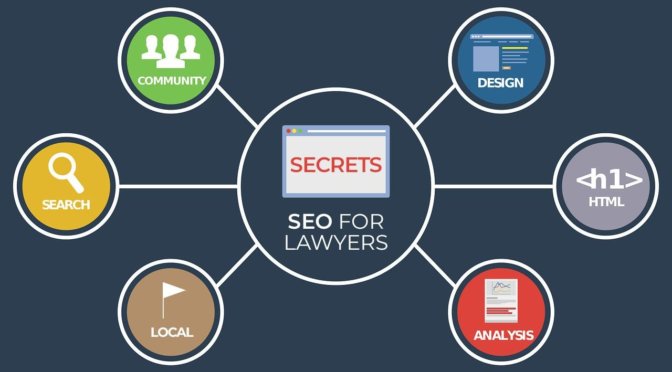
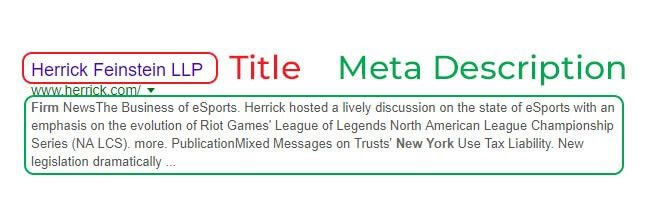
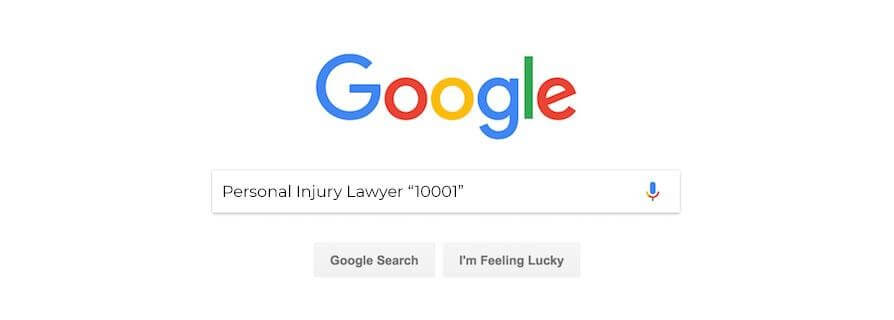
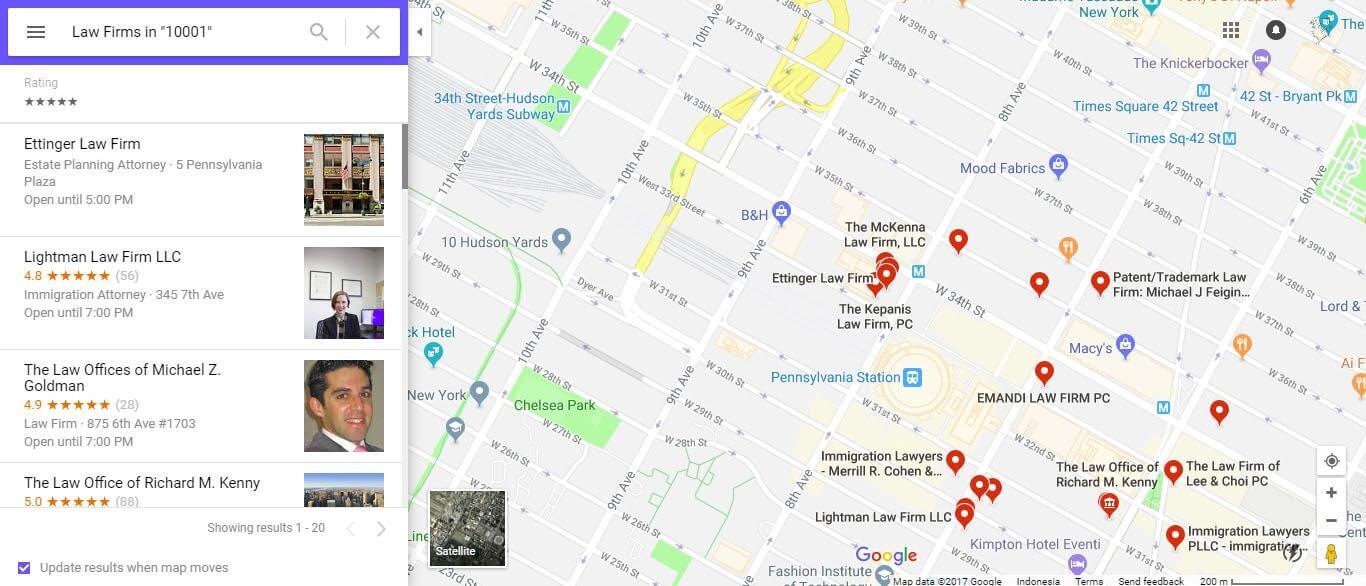


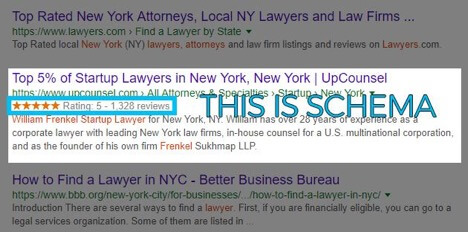


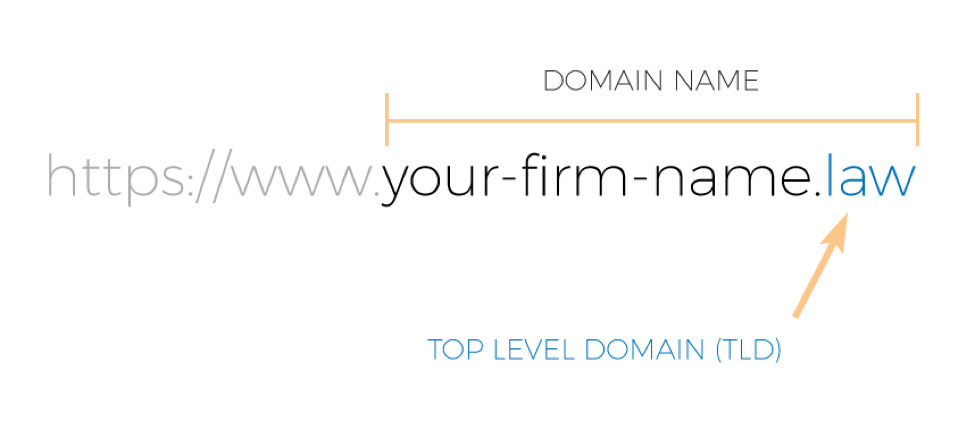
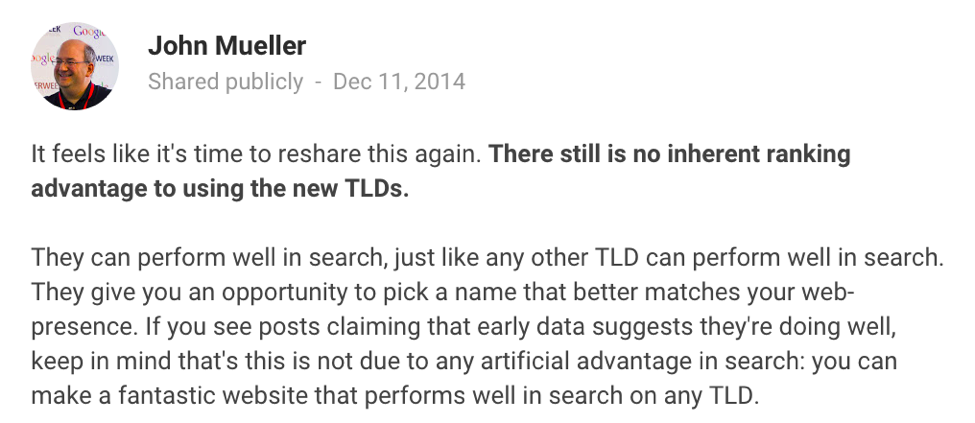
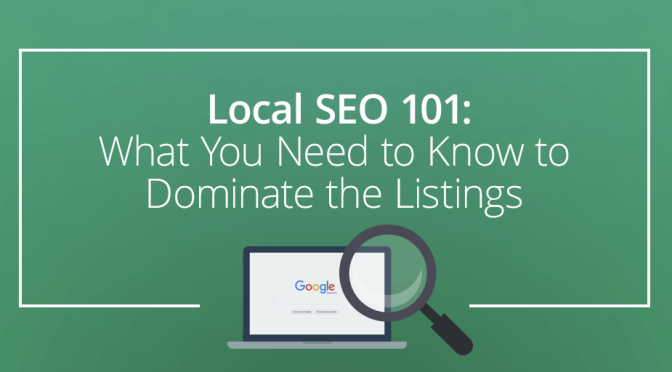








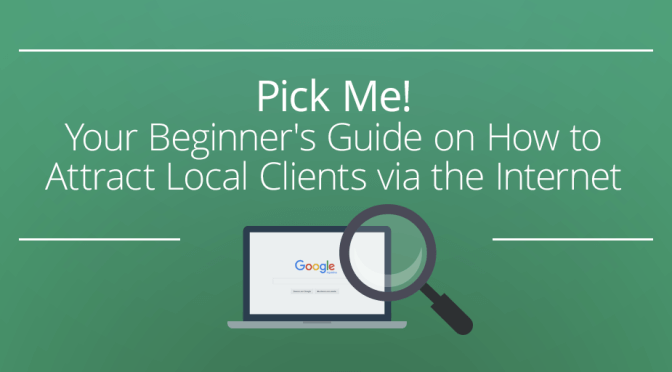



 Screenshot of Zachar
Screenshot of Zachar  A
A  A Yelp search for “law firms in Phoenix, AZ”
A Yelp search for “law firms in Phoenix, AZ”